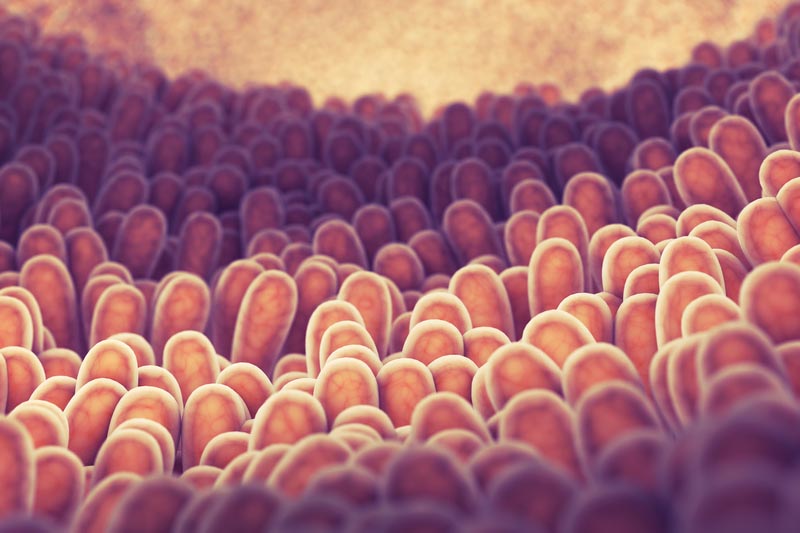-
What is already known on this topic
Bacterial species such as Bifidobacterium and Lactobacillus have been implicated in the maintenance of the gut lining. But the mechanisms underlying these effects are unclear. -
What this research adds
Lactic-acid-producing bacteria support intestinal epithelial cell regeneration by promoting the growth and differentiation of intestinal stem cells. Both lactic-acid-producing bacteria and lactate protected mice from gut injury induced by radiation and drugs. -
Conclusions
The findings could be used to inform the clinical use of lactic-acid-producing bacteria or lactate to prevent gut injury induced by radiation therapy and chemotherapy.
Lactic-acid-producing bacteria support the regeneration of the gut lining by promoting the growth and differentiation of precursor cells called intestinal stem cells (ISCs). That’s the conclusion of a mice study led by Yong-Soo Lee at the University of Ulsan College of Medicine/Asan Medical Center, Seoul, and published in the journal Cell Host & Microbe.
The lining of our gut is continuously renewed every 3 to 5 days thanks to ISCs, which differentiate into functional gut cells. Bacteria that produce the metabolites butyrate and lactate, such as Bifidobacterium and Lactobacillus, are thought to be important for maintaining the gut epithelium. But how these lactic-acid-producing bacteria (LAB) regulate the gut environment is unclear.
To address this question, the researcher fed probiotics containing LAB to mice and looked at the effects on ISC growth and differentiation.
Lactic-acid-producing bacteria are key for epithelial regeneration
Mice fed probiotics had more ISCs and differentiated intestinal cells as well as significantly higher levels of the metabolite lactate in their gut than mice that were not fed probiotics. What’s more, 3D multicellular tissues that mimicked small intestine crypts (SI organoids) treated with probiotics or lactate for up to 5 days showed a significantly increase in size and growth as well as higher numbers of ISCs compared to untreated SI organoids.
In SI organoids treated with probiotics or lactate, the expression of genes related to the Wnt/β-catenin pathway, which regulate cell growth and differentiation, was enhanced. A molecule that antagonizes the effect of lactate completely blocked the activation of these genes.
Mice treated for 5 days with strains of Lactobacillus that are unable to produce lactate had significantly fewer ISCs and differentiated gut cells compared to mice treated with wild-type Lactobacillus strains. Similarly, SI organoids treated with the defective Lactobacillus strains had fewer ISCs and differentiated gut cells and were smaller in size compared to organoids treated with wild-type strains.
LAB and lactate prevent gut injuries induced by radiation and drugs
Next, the researchers used germ-free and antibiotic-treated mice to test the effects of exposing the gut microbiota to lactate on the growth of ISCs.
The team obtained SI organoids from newborn germ-free mice that had impaired ISC growth. Treatment with lactate improved ISC growth and increased the expression of Wnt/β-catenin pathway-related genes.
Then the researchers looked at adult mice that were given antibiotics before and during lactate treatment. Antibiotic-fed mice had distorted crypts and fewer differentiated gut cells than mice that were not given antibiotics. However, treatment with lactate recovered differentiated gut cells in antibiotic-fed mice.
Compared to untreated mice, mice treated with probiotics or lactate were also protected from gut injuries induced by radiation and drugs such as methotrexate. These mice lost less body weight and had higher survival rates than untreated mice.
In summary, the study shows that LAB such as Bifidobacterium and Lactobacillus support intestinal epithelial cell regeneration by promoting the growth and differentiation of ISCs. Both these bacteria and lactate protected mice from damages to the gut lining induced by radiation and drugs. For this reason, the authors propose that LAB or lactate could be used in the clinics to prevent gut injury after radiation therapy and chemotherapy.









